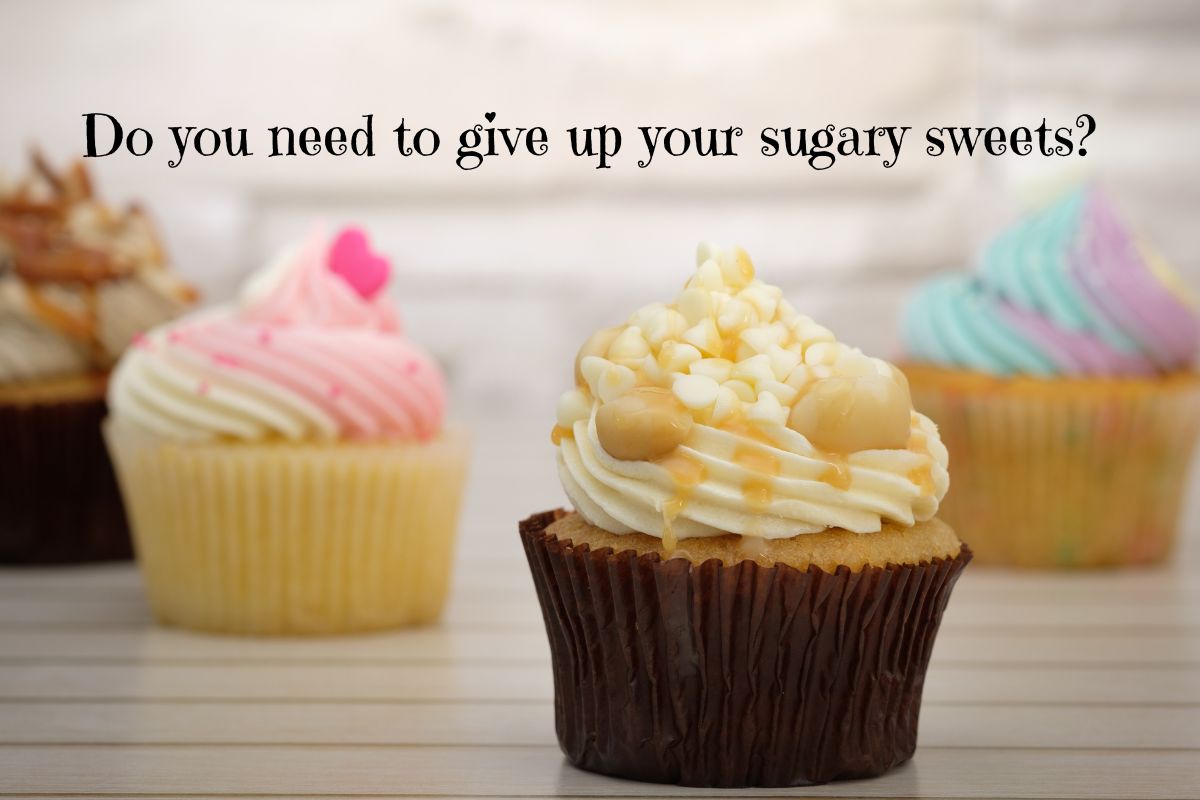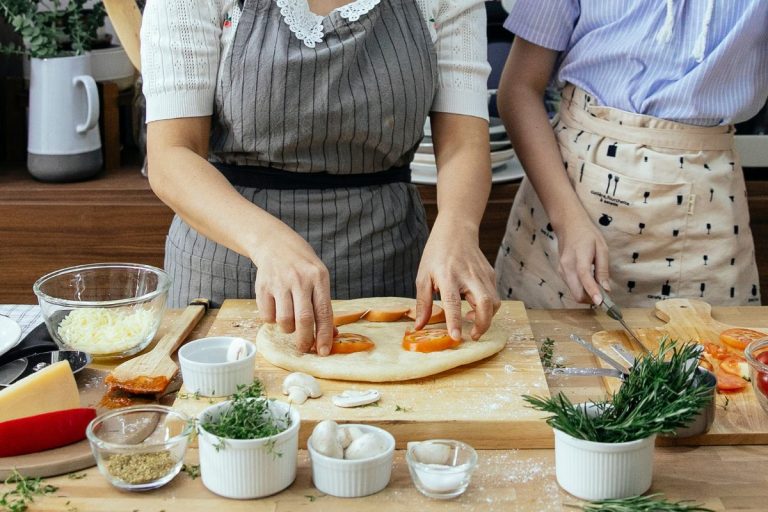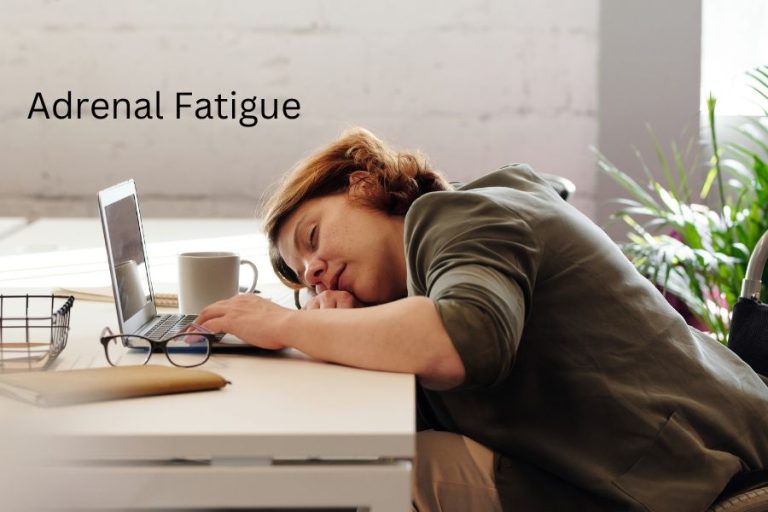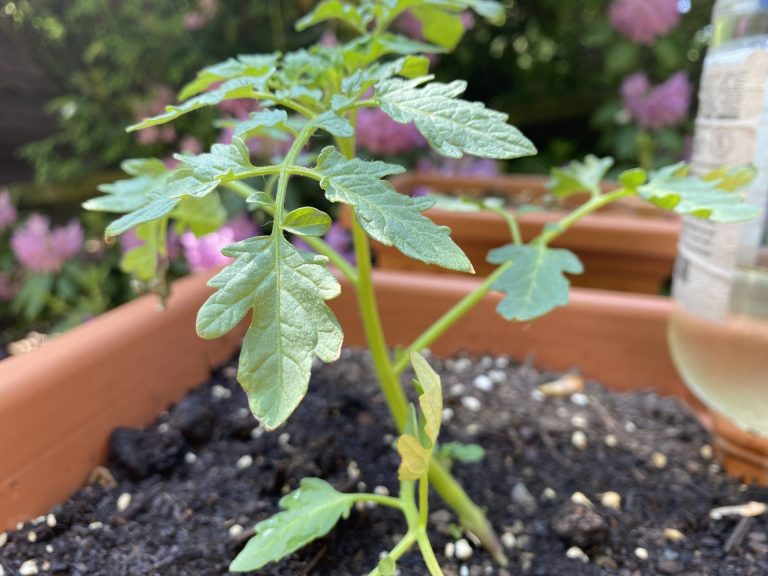Do I Have to Give Up Sugar?
This post may contain affiliate links. View our disclosure policy here.
There it is. The question that’s on a lot of people’s minds. And the one most likely to be avoided. Do I have to give up sugar?
Well, no. That’s my short answer.
BUT, that’s because I believe in free will as God does.
My long answer is please take a few minutes to read the information I have gathered below. Browse for and read some other sources. Make a decision that is best for you and your health.
Why You Need To Stop Eating Sugar
Functional medicine doctors and other holistic practitioners approach the subject of sugar with a perspective that considers sugar’s impact on overall health and well-being.
Individual recommendations may vary, but in general there are common thoughts or teachings regarding sugar:
Balancing Blood Sugar
When reading holistic medicine sources or talking to functional medicine practitioners, there’s a huge emphasis of maintaining blood sugar levels.When you consume excessive sugar, especially refined sugars, there’s a rapid spikes and crashes in blood sugar levels.
This greatly contributes to energy fluctuation, mood swings, and an increased risk of health issues such as insulin resistance and type 2 diabetes.
Insulin resistance happens when cells become less responsive to insulin. This means even though your body makes insulin, the cells don’t open up as easily, and sugar can’t enter effectively.
Type 2 diabetes is a condition where insulin resistance plays a big role. Since the cells aren’t responding well to insulin, sugar builds up in your bloodstream instead of going into the cells. This can lead to high blood sugar levels.
Inflammation and Chronic Diseases
The relationship between sugar consumption and chronic diseases and inflammation is a complex but well-studied topic in nutrition and health research.
While sugar itself is not inherently harmful in small amounts, excessive consumption of added sugars, particularly when consumed daily and/or in the form of refined sugars and high-fructose corn syrup, has been linked to various chronic diseases and an increased risk of inflammation.
Sugar is believed to promote inflammation in the gut, (see more below) which can have far-reaching effects on overall health. Chronic inflammation in the gut can contribute to various digestive disorders and may also be linked to systemic inflammation, affecting other parts of the body.
Gut Health
Functional health practitioners recognize that what you eat can significantly impact the health and balance of your gut microbiota, which plays a crucial role in overall health and well-being. See my post on gut health for more information on how your gut affects your overall health.
A diet that is high in added sugars can disrupt the balance of gut bacteria. Consuming excessive sugar can lead to an overgrowth of harmful bacteria as well as a reduction in beneficial bacteria. This imbalance, called dysbiosis, is associated with various gastrointestinal issues and can also contribute to chronic inflammation.
High sugar intake contributes to what is termed “leaky gut” or increased intestinal permeability. This theory suggests that sugar weakens the tight junctions between the cells which line the intestines. This, then, allows harmful substances to pass through the gut barrier which then triggers an immune response.
Consuming sugar can also contribute to yeast overgrowth or Candida. This potentially leads to symptoms such as fungal infections and digestive issues.
Weight Management
High sugar intake provides empty calories, leads to blood sugar spikes and crashes, and can increase overall calorie consumption. Additionally, sugar-sweetened beverages are often linked to weight gain due to their high calorie content and lack of satiety.
Hormone Balance
There is a recognized relationship between excessive sugar consumption and hormone imbalances. High sugar intake can disrupt the delicate balance of hormones in the body in several ways:
- Insulin Resistance: High sugar consumption can lead to insulin resistance, where cells become less responsive to insulin. This means there is higher insulin levels in the bloodstream.
- Leptin Resistance: Sugar can disrupt the function of leptin, the hormone that regulates appetite and metabolism. Leptin resistance may lead to overeating and weight gain.
- Cortisol Imbalance: Blood sugar spikes and/or crashes causes the release of the stress hormone cortisol. Over time, chronic stress and cortisol dysregulation can impact other hormones, including those related to reproductive health.
- Inflammation: As discussed previously, sugar can promote inflammation, which can disrupt hormonal balance. Inflammation may interfere with the normal production and function of hormones.
- Sex Hormone Imbalances:A diet high in sugar may contribute to imbalances in sex hormones, such as estrogen and testosterone. This can affect reproductive health, libido, and menstrual cycle regulation.
Addiction and Cravings
This one hits home for me. I still CRAVE sugary sweets. On a dreary dismal day, I can almost TASTE the processed sugary sweets I gave up years ago. I turn to healthier options – BUT – they still contain sugar. It’s a hard ‘addiction’ to stop.
Sugar can influence addictions and/or cravings by triggering the release of dopamine, a neurotransmitter associated with pleasure and reward.
When sugar intake is reduced, withdrawal symptoms like cravings can occur, perpetuating a cycle of addiction. Additionally, the rapid spikes and crashes in blood sugar caused by sugar consumption can lead to increased hunger and cravings for more sugary foods, making it challenging to control sugar intake and contributing to addictive-like behaviors.
Have you ever experienced that? I do all the time. I think- oh, I’ll let myself have this one square of my chocolate bar and that will be enough. It’s possible, but hard to stop there. Often that bit of sugar tells my brain, “MORE”. I need to practice a lot of self-control.
How Can I Stop Eating Sugar?
Whole Food Emphasis
You can avoid added sugars and reduce your sugar intake by focusing on a diet rich in whole foods.
As a suggestion, if you’re a mom like me, when we switched over, years ago, from a standard American diet to one that was more of a whole foods diet, it was fun having my kids involved, picking and making new recipes! It made it easier and more fun for them when they were fully engaged with what we were eating instead of focusing on what we were giving up.
In your quest to lower or eliminate sugars, limit processed and packaged foods like sweetened cereals, snacks, and sauces, which often contain added sugars. Instead, make your own versions with whole ingredients.
Choose whole fresh fruits like apples, berries, and oranges. These do contain natural sugars but can often help ease the sugar cravings with the benefits of the extra nutrients and antioxidants.
Choose foods such as nuts, seeds, fresh and vegetables. Eat foods high in healthy fats. Make your own desserts and cut back on the sugar content. I often make cookies or cakes at home and cut back the sugar by 3/4 or often half what the recipe calls for with no issues.
Use natural sweeteners sparingly. Some do just as much damage and cause the same isssues as sugar. Avoid artificial sweeteners entirely.
Reading Labels
Familiarize yourself with the sugar content of various foods, and choose low-sugar or sugar-free alternatives when possible. Read the labels on everything.
Sugar isn’t just called ‘sugar’.
When buying packaged foods, carefully read ingredient labels to identify added sugars. Look out for terms like sucrose, high-fructose corn syrup, and other sugar-related names.
Eating Well magazine published this extensive list for people trying to cut back on sugar and other sweeteners.
Individualized Approaches
There’s a lot of approaches to cutting back on sugar. What it really comes down to is focusing on your own reasons for giving up or at least cutting back on sugar as well as what works for you. Here’s a few websites and books that may help you find your individualized approach.
Whole30.com Check this site out and their amazing program. The founders wrote the following book that may be helpful too!
It Starts With Food – this book is a great source for explaining how sugar and other foods affects us and is a great guide for starting the Whole30 program.
The Case Against Sugar – the book “that makes the convincing case that sugar is the tobacco of the new millennium”.
Sugarless: A 7 step plan to Uncover Hidden Sugars, Curb Your Cravings, and Conquer Your Addiction This one is on my wish list. I know a lot of people that swear by this author and appreciate his writings on diet and sugar. It’s coming out this December!
Mindful Eating
One more approach I didn’t mention above is mindful eating. It’s a free approach but should probably be used in conjunction with the ones I mentioned above. The connection between sugar and mindful eating lies in being aware of your sugar consumption and making deliberate choices about when, why, and how much sugar you consume.
Mindful eating involves paying full attention to the sensory experience of eating, including taste, texture, and the delicious aroma.
Also, by practicing mindful eating, you can become more attuned to your body’s hunger and fullness cues, making it easier to make conscious decisions about sugar intake. This awareness can help you choose to savor sugary treats on occasion but also avoid mindless or emotional eating of sugary foods, ultimately promoting a healthier relationship with sugar and improved overall well-being.
Conclusion
Do I have to give up sugar? That’s how I started this post. What do you think?
Functional health practitioners often recommend reducing or eliminating added sugars from the diet to health and your immune system. They may encourage a diet focused on whole, unprocessed foods, including plenty of fiber-rich fruits and vegetables. Some may suggest specific dietary interventions, such as a low-sugar or anti-inflammatory diet, to address gut-related issues. Some may tell you to give it all up NOW, while some may encourage small changes.
The truth is, you know it’s bad for you. How much do you want to do about it?
If you want to know more about giving up sugar and how to do it, I suggest this blog post from one of my favorite bloggers, FoodBabe!
As a reminder, I am not a doctor or a holistic medicine practitioner. I am a blogger. I’m a mom who has studied extensively the topics of holistic health for myself and my family. I am sharing this information for educational purposes only. I wish for you to continue studying relevant information from trusted holistic sources and talk with your holistic practitioner. Please see my disclaimer page.








Great post! I actually do think we shouldn’t eat processed sugar but that’s just me. This article is very informative – thanks for sharing!
I agree. Natural sugars from foods are actually much better.
Our body needs sugars but it’s through complex carbs not simple carbs.
We always say foods in their natural form as God made them are wonderful, but the more man has messed with it, the worse it is!
I agree. I am also honest in that I still do on occasions. And I do end up falling into a pattern of eating more, more often. But when I recognize what I’m doing, I’m very capable of pulling back and avoiding it. It’s a process. That’s why I write this blog. I understand how hard these steps can be. I’m so glad you are on board for avoiding it!
This is truly a tricky question to tackle and your post did a fabulous job of clarifying the things surrounding it. Thanks for putting this resource together.
Thanks for stopping by. I hope you take the steps to start using less sugar!
Great Post! This is what I am working on. We have a health coach at my church and she was just talking about how sugar can cause inflammation. I am saving this post to review later so I can make better choices.
I’m so glad you know of someone personally that can help guide you as you work toward better choices!
You put everything out there perfectly and made it easy to understand. I’m trying to quit sugar myself and oh my gosh it’s so hard!
I totally get that! I had to give it up entirely for a year when I followed an AIP diet to battle Lyme Disease naturally. It was SO HARD! Just pick a few things to make progress with, one step at a time. Forgive yourself for any fall backs, and keep moving forward! Just think, what’s one thing today that I could make a healthier choice with in terms of sugar?
This post is speaking to me. I have such a sweet tooth. Great suggestions.
I hear you. It’s definitley one of my biggest temptations in life. Just keep trying. What’s one sugary treat that you could give up for maybe a week?
This post was very thought out on approaching giving up sugar! I appreciate the why section on all the benefits!
I hope you can take a few tips and lessen the negative load sugar has on your health!
This is a great post. And it is what we all need to know more about. Processed sugars have taken our tastebuds hostage, and we’re abandoning whole foods. I began educating myself more on how the body functions and the effects of overconsumption and processed foods. It empowered me to be more intentional with the foods I select/buy and focus more on proper nutrition. Plus, I exercise, so I need to refuel.
Healthy eating isn’t dull; it’s an adventure.
Indeed, it really is a positive adventure!
Very informative. I can say that when I’ve cut back on sugar drastically over the years, and now the taste can be overpowering for me if something has too much of it.
That’s great that you have gotten your body to the point of recognizing that on its own!
Thank you for this indebt undisputable article. I am on a journey to overcome this socially accepted addiction. It has really taken a toll on my body since I started menopause.
It’s true. It is an addiction despite it being so socially accepted and, in fact, encouraged. I encourage you to continue your journey. Feel free to reach out for support, encouragement, ideas, and more.
I love carbs and sugar, but I always was a slim woman. And I was very surprised because I had gestational diabetes in two of my pregnancies. Now I have to balance my sugar intake, and sometimes it is hard. I want to try the whole30 system.
Olga I have to really encourage you to try it. I do suggest that you try the whole30 but extend it to 50 days or more for optimal benefits. I just feel that I don’t get as much benefit when we keep it at 30 – that’s me and my family though. I know many see big differences in just the 30.